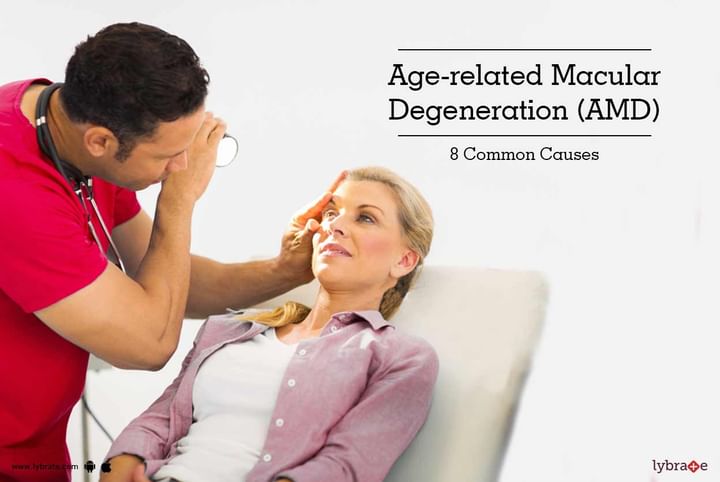Age-related Macular Degeneration (AMD) - 8 Common Causes
Macular Degeneration is an age-related macular degeneration incurable eye disease, which might result in blurred vision or no vision in the centre of the vision field, which might lead to visual distortions, reduced central vision, decreased intensity of the colours and can make it difficult for the patient to recognize faces, read, drive and to perform other activities.
Types of Macular Degeneration
1. Dry Macular Degeneration: It is characterized by the presence of drusen and thinning of macula because of a breakdown or thinning of the layer of retinal pigment epithelial cells in the macula.
2. Wet macular degeneration: In this type of AMD, there is an excessive growth of blood vessels, which causes bleeding, leakage, as well as scaring under the retina, which results in a rapid and severe loss of the central vision and might become permanent if not treated.
Causes of Age-related Macular Degeneration:
This is caused due to a problem related to the part of eye known as Macula, which is a spot at the centre of the retina of the eye. The focus point of the incoming ray of light is on Macula, which is responsible for see the things direct in front of us, especially reading and writing.
- Age: As the age increases, the probability of developing Age-related Macular Degeneration also increases significantly. The degree of the macular degeneration might vary person to person, but ageing is a major cause of suffering from age-related macular degeneration.
- Smoking: Smoking increases the chances of developing the disease in comparison to someone who does not smoke. The longer you have smoked, the more are the chances of developing it.
- Family History: The risk of developing the Age-related Macular Degeneration increases if it runs in your family, i.e. if your parents and siblings are suffering from it, then your chances of developing it are quite high as compared to the ones who do not have any family history.
- Obesity: The obese people have the higher chances of developing Age-related Macular Degeneration.
- Alcohol: Higher alcohol consumption also puts you at the risk of AMD, which is why one should always take alcohol in limited quantity only.
- Sunlight: As going out in sunlight without sunscreen is harmful to your skin, the same is harmful to your eyes for longer duration, and one should always wear UV-absorbing sunglasses to protect his eyes from AMD.
- Ethnicity: The white and Chinese are more prone to developing AMD as compared to the black people.
- Cardiovascular disease: The persons who have suffered diseases that affect the heart and other blood vessel are at higher risk of macular degeneration.
Treatment of Age-related Macular Degeneration
1. Anti-VEGF Drugs: The dry macular degeneration cannot be cured while the wet macular degeneration can be stabilized and maintained with a number of medical treatments to be injected into the eye, such as Lucentis, Avastin and Eylea. These are not long procedures and continued monitoring of the vision to maintain or improve the vision.
2. Laser photocoagulation: It consists of a concentrated beam of high energy thermal light that is directed towards the retina to obliterate and seal leaking blood vessels. If you wish to discuss about any specific problem, you can consult an ophthalmologist.



+1.svg)
